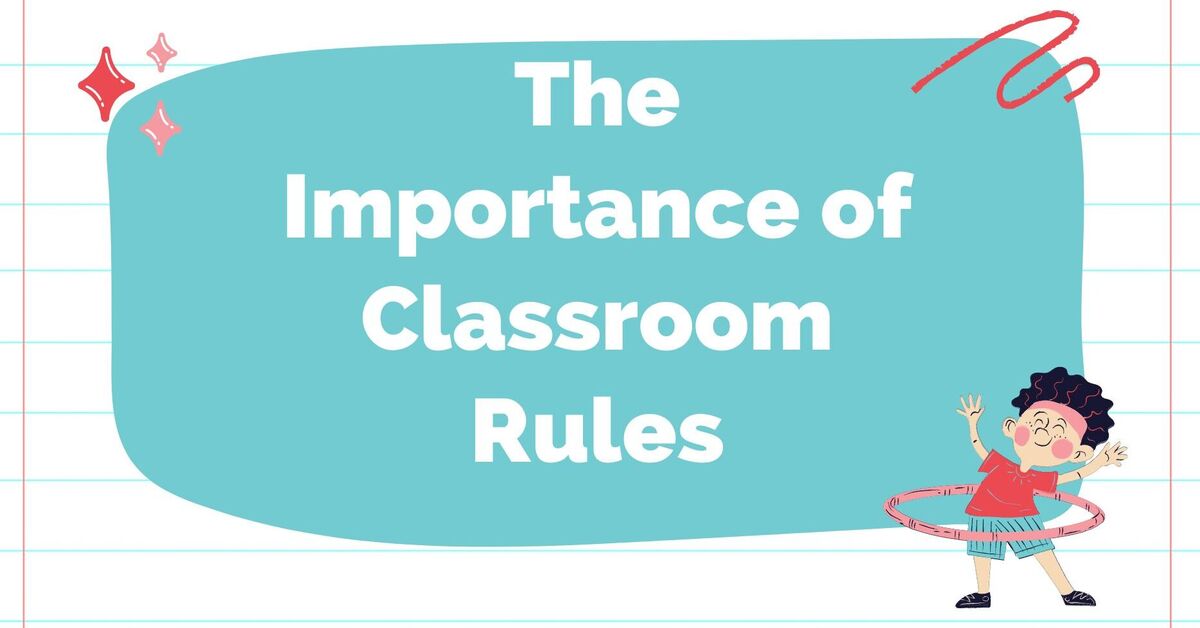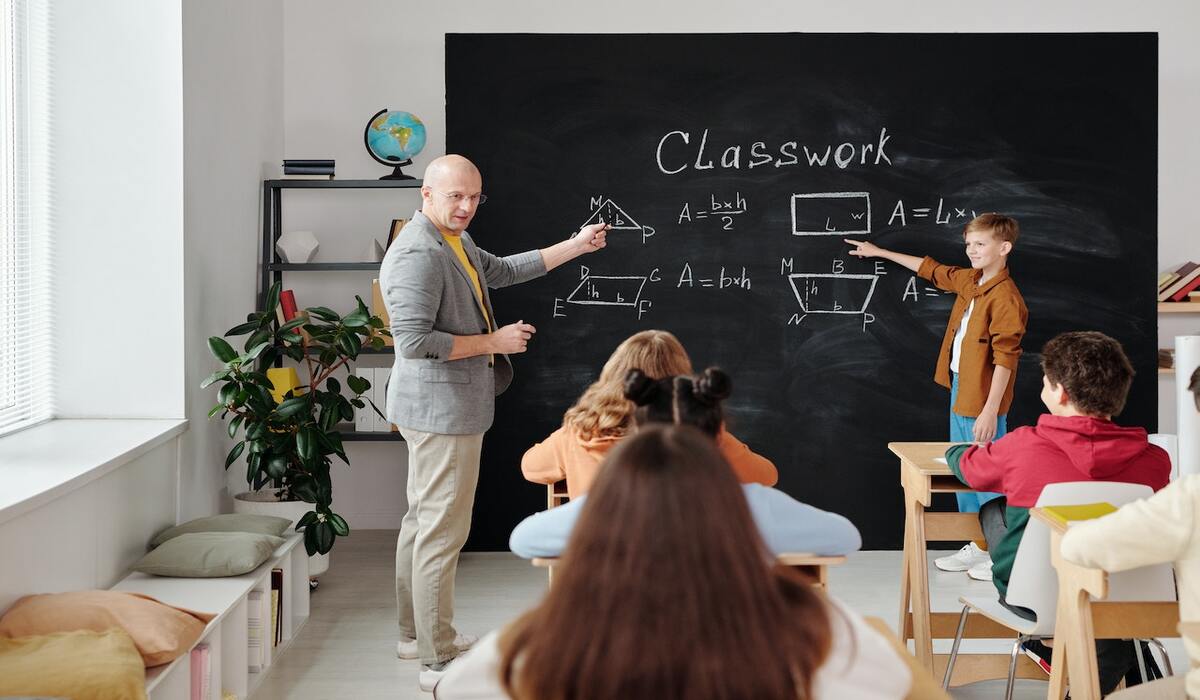Classroom rules are vital in establishing a positive and conducive learning environment in any educational setting. They provide clear guidelines and expectations for student behavior, ensuring a safe, respectful, and productive space for teachers and learners. This article explores the importance of classroom rules and how they contribute to effective teaching and learning.
The Purpose of Classroom Rules
Rules in the classroom have several uses for both students and teachers. They laid the groundwork for establishing a controlled learning environment, encouraging discipline, and encouraging students to take responsibility for their actions. Running the classroom effectively and enhancing learning with clear expectations and standards is easier.
Establishing a Positive Learning Environment
Classroom rules are frequently implemented to foster a supportive learning environment. Students’ feelings of safety, stability, and belonging are facilitated by clear rules that assist in setting limits, expectations, and routines. Students are more likely to participate in learning activities and form favorable views toward school when they feel safe and supported.
Creating Consistency and Structure
Consistency and structure in the classroom are crucial for productive teaching and learning. Rules create a predictable environment where students know what is expected by outlining appropriate behavior. Students can focus on their schoolwork without being distracted by routines and rules that are routinely enforced.
Promoting Respect and Responsibility
Classroom rules emphasize the importance of respect and responsibility. They teach students to treat their peers, teachers, and the learning environment with dignity and consideration. Rules guide students in understanding the impact of their actions on others and promote a culture of respect, fostering positive relationships and a sense of community within the classroom.
Enhancing Focus and Minimizing Distractions
Well-defined classroom rules help minimize distractions and enhance students’ focus on learning. By setting expectations for behavior during class time, rules reduce disruptions and create an atmosphere conducive to concentration. This enables students to engage fully in lessons, absorb information effectively, and maximize their academic potential.
Fostering Collaboration and Cooperation
Classroom rules facilitate collaboration and cooperation among students. By establishing guidelines for group work and interactions, rules encourage teamwork, communication, and problem-solving skills. Students learn to work together, respect diverse perspectives, and appreciate the value of collective effort, preparing them for future collaborative endeavors.
Teaching Self-Discipline and Time Management
Essential life skills like self-discipline and time management are developed in the classroom. Following the rules teaches pupils to control their conduct, set priorities, and efficiently manage their time. Success in school and many other facets of their personal and professional lives depends on these abilities.
Addressing Diversity and Inclusion
Classroom rules also play a role in addressing diversity and promoting inclusion. Teachers create an inclusive environment where every student feels valued and accepted by setting rules emphasizing respect for different cultures, backgrounds, and perspectives. Rules that discourage discrimination or bias help foster a sense of equity and encourage students to embrace diversity.
Encouraging Accountability and Responsibility
Classroom rules encourage students to take responsibility for their actions and promote accountability. When rules are in place, students understand that their behavior has positive and negative consequences. By holding students accountable for their actions, teachers instill a sense of responsibility and teach important lessons about personal integrity and making informed choices.
Reducing Behavior Issues and Classroom Disruptions
Well-implemented classroom rules can significantly reduce behavior issues and disruptions in the learning environment. By providing clear expectations and consequences, rules act as a deterrent to inappropriate behavior. Students who understand the boundaries and consequences are likelier to exhibit positive behavior and contribute to a harmonious classroom atmosphere.
Teaching Life Skills for Success
Classroom rules govern student behavior and serve as a platform for teaching valuable life skills. By following rules, students learn skills such as self-control, conflict resolution, problem-solving, and decision-making. These skills are essential for success beyond the classroom, helping students navigate challenges and make responsible choices in their personal and professional lives.
Building a Positive Teacher-Student Relationship
Establishing and enforcing classroom rules can help build a positive teacher-student relationship. When teachers consistently enforce rules fairly and respectfully, students perceive them as caring and supportive. Rules provide a framework for interactions, creating a sense of trust and mutual respect between teachers and students.
Monitoring and Reinforcing Classroom Rules
To ensure the effectiveness of classroom rules, teachers need to monitor and reinforce them consistently. Regular reminders, discussions, and feedback can help students internalize the rules and understand their importance. Teachers should also recognize and reinforce positive behavior, providing incentives or rewards to motivate students to adhere to the rules.
Conclusion
Classroom rules are crucial in setting clear expectations for student behavior and creating an optimal learning environment. They promote discipline, respect, responsibility, and collaboration while reducing disruptions and behavior issues. By teaching life skills and fostering positive teacher-student relationships, rules contribute to students’ overall growth and success. Implementing and enforcing well-defined classroom rules is an investment in the future of individual students and the educational community.
FAQs (The Importance of Classroom Rules)
1. Why are classroom rules important?
Classroom rules are important because they provide clear guidelines and expectations for student behavior, create a positive learning environment, promote discipline, and establish a sense of responsibility among students.
2. How do classroom rules contribute to a positive learning environment?
Classroom rules contribute to a positive learning environment by establishing boundaries, routines, and expectations, creating a sense of student safety and consistency.
3. What life skills can be taught through classroom rules?
Classroom rules can teach life skills such as self-discipline, time management, conflict resolution, problem-solving, and decision-making.
4. How can teachers reinforce classroom rules effectively?
Teachers can reinforce classroom rules effectively by monitoring student behavior, providing regular reminders and feedback, recognizing and reinforcing positive behavior, and consistently enforcing the rules.
5. How do classroom rules promote collaboration and cooperation?
Classroom rules promote collaboration and cooperation by establishing group work and interaction guidelines, encouraging teamwork, communication, and appreciation of diverse perspectives.
















